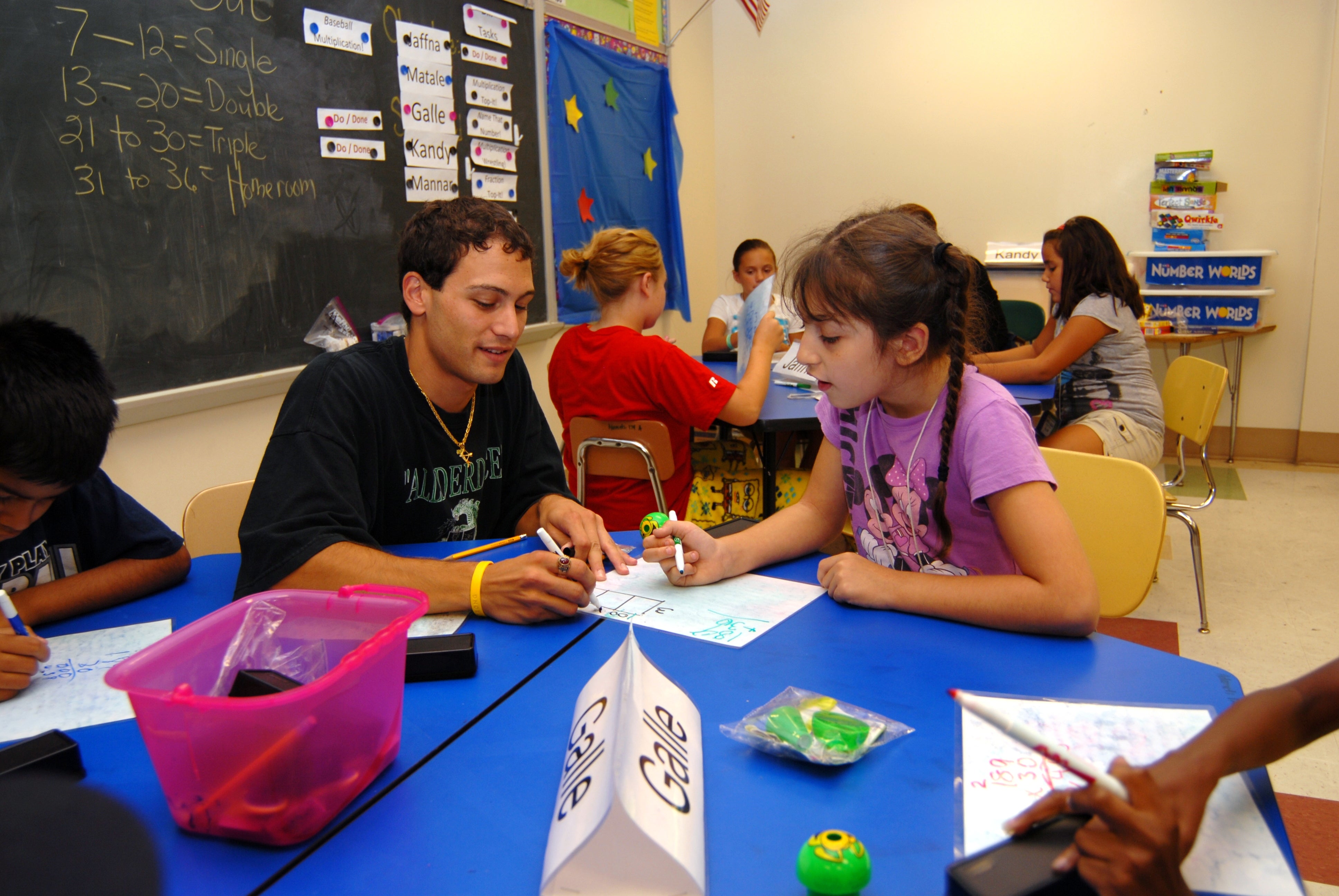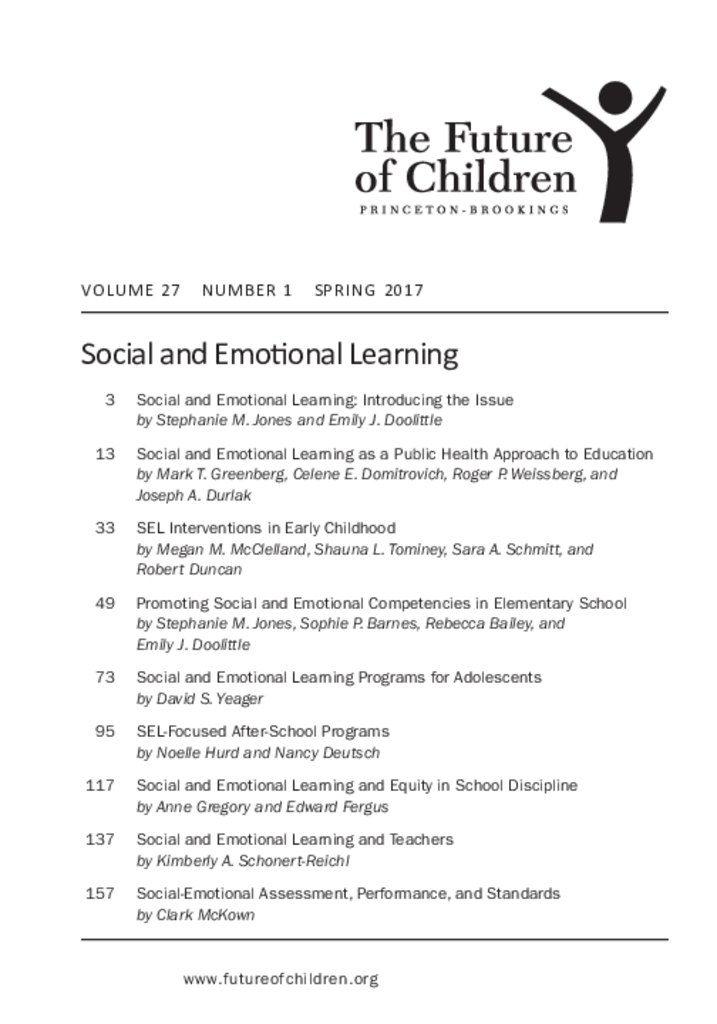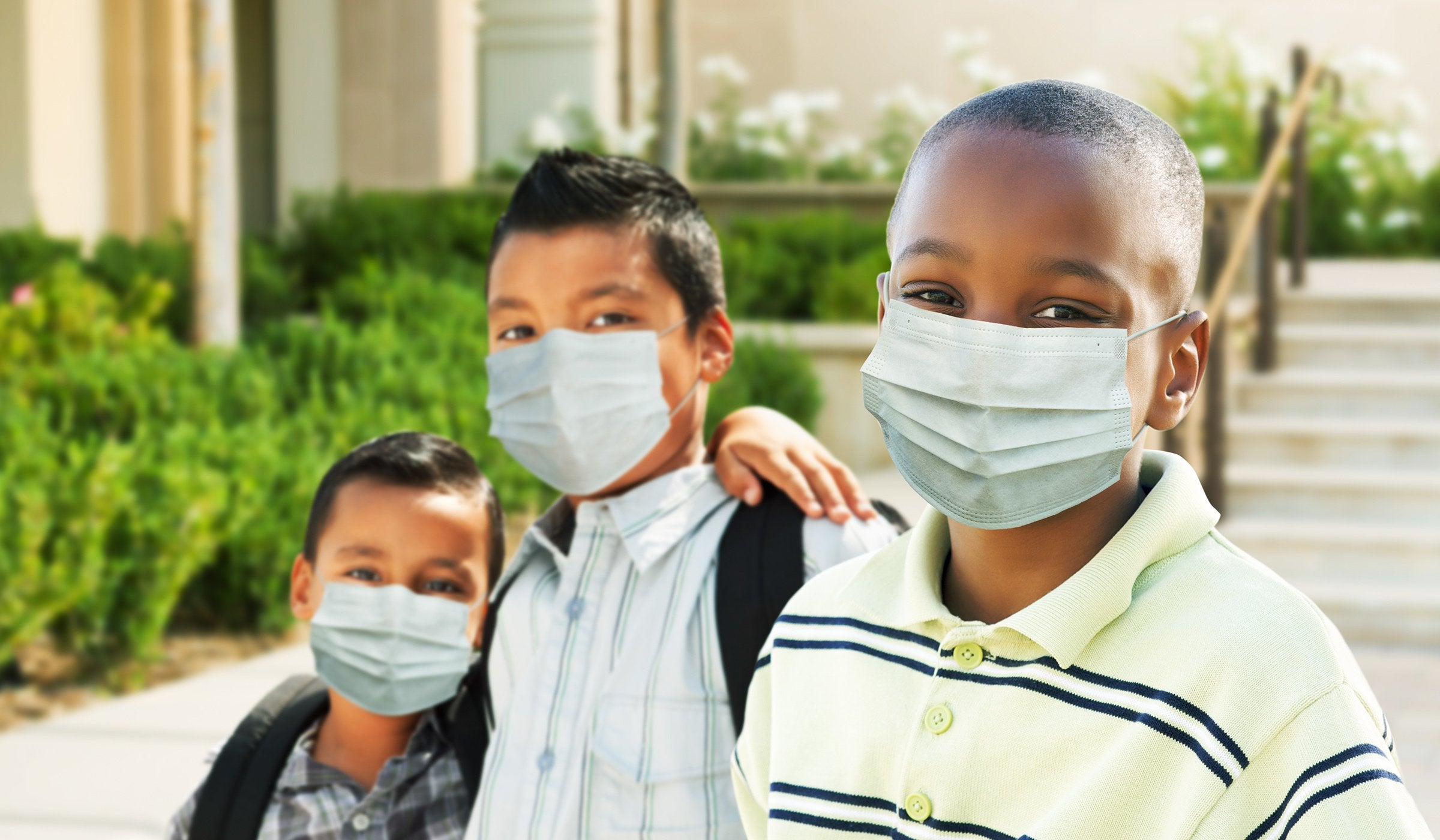Breadcrumb
- Wallace
- Reports
- The Future Of Children: Social A...
The Future of Children: Social and Emotional Learning

Overview
More
Less
Summary
This special issue of the journal The Future of Children examines the development of social and emotional learning (SEL) in school and afterschool settings, finding that these skills are essential for children and that teachers and OST staff need professional development to help children acquire them.
The issue also covers major policy issues in education like teacher preparation, school discipline, and school-based assessment for intervention and accountability purposes. The editors urge a greater focus on outcomes at the teacher and classroom level; a focus on skills appropriate to each grade and age; and that measurement should narrow in focus but be broader in context and depth.
At its core, the editors write, social and emotional leaning involves children’s ability to learn about and manage their own emotions and interactions in ways that benefit themselves and others, and that help children succeed in schooling, the workplace, relationships, and citizenship.
The essays in the journal by a variety of authors include:
- A framework for considering the role of schools and related settings in supporting SEL skills and development using a public health model emphasizing services for all. The authors argue that “evidence-based social and emotional (SEL) programs, when implemented effectively, lead to measurable and potentially long-lasting improvements in many areas of children’s lives.”
- Four articles on the state of the science at different levels of schooling, including preschool, elementary school, middle and high school, and afterschool programs. The four articles ask how SEL skills are defined and typically cultivated, what has been learned from intervention and prevention, what strategies are effective, whether effects vary depending on children’s background, and the primary challenges to integrating SEL into educational practice. The editors conclude that research evidence that is apparently inconsistent is less so than it appears, and is the result of a misalignment between what the intervention sought to accomplish and what is measured. “What appears to be variation in impacts may instead stem from imprecise program targets misaligned with too-general measures of outcomes. That is to say, program evaluations often fail to measure whether students have mastered the precise skills the programs seek to impart.”
- Three articles that offer an overview of the policy landscape in relation to SEL in three areas: teacher professional development and well-being; assessment and learning standards; and school discipline policies and practice. The authors of the essays conclude that: teacher preparation programs largely ignore this aspect of teaching; that incorporating SEL into schools can reduce the need to suspend or expel students; and why sophisticated test development that meets rigorous scientific and ethical standards is important for school-based SEL to achieve its promise, and that current assessments are inappropriate for high-stakes testing.
Key Takeaways
- The Future of Children turns its focus on social and emotional learning, finding that these skills are essential for children and that adults need training to help children develop them.
- In schools and afterschool programs, efforts to help children develop social and emotional skills should focus on skills that are relevant to the particular age group, according to the spring issue of The Future of Children.











